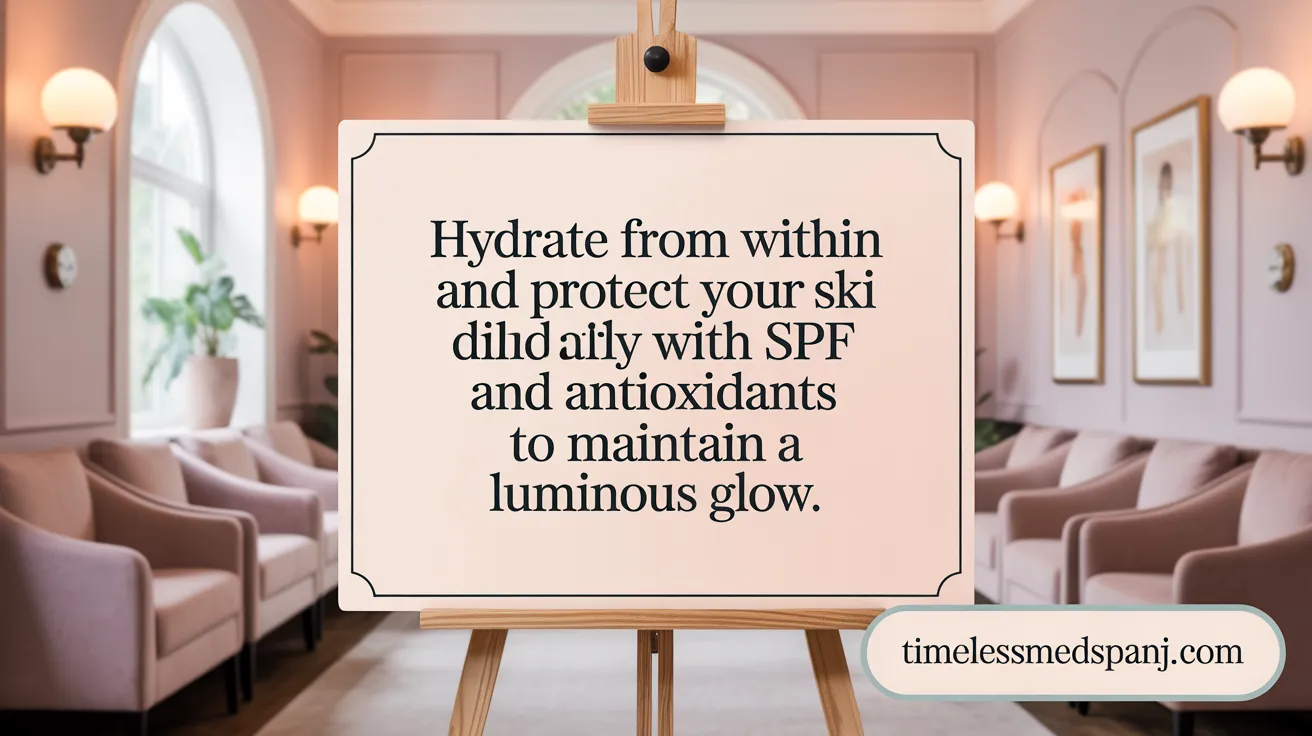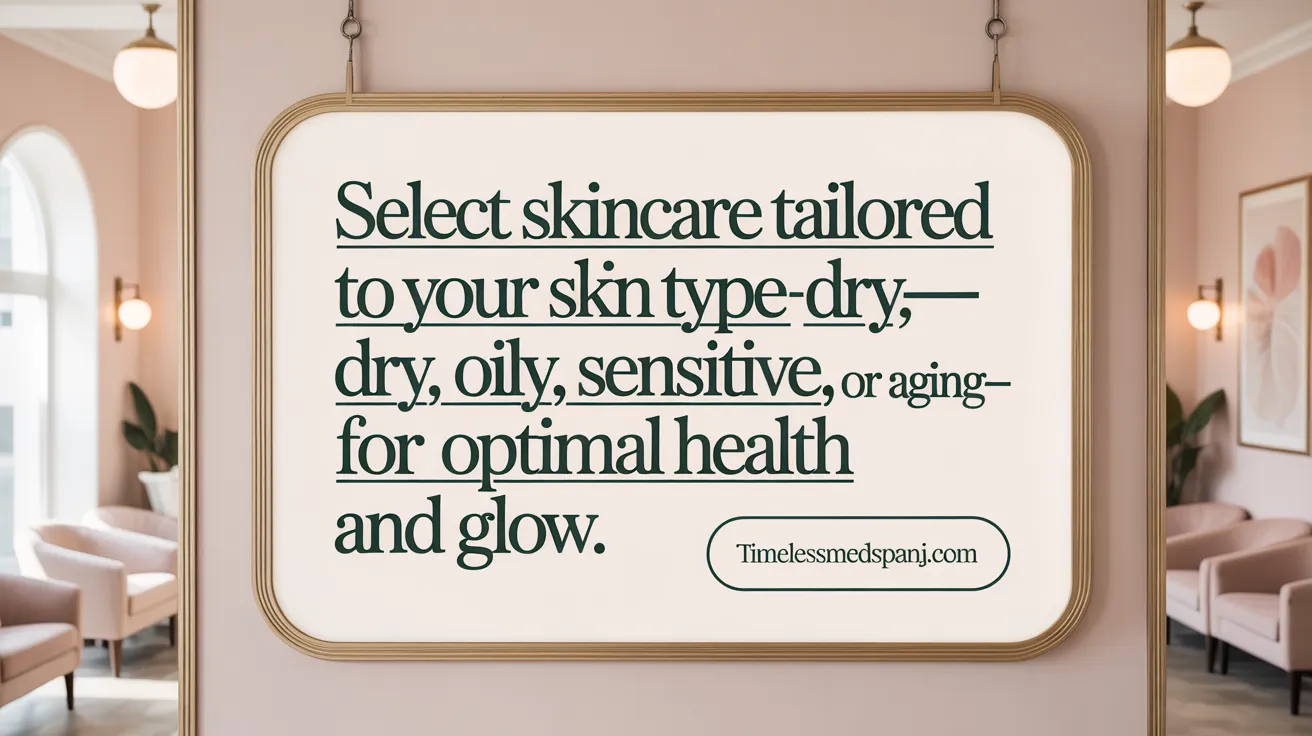Why a Thoughtful Skincare Routine is Your Best Ally for Radiance
Achieving glowing skin is a universal desire that stems from a healthy, well-maintained complexion. Dermatologists emphasize that the secret to radiant skin lies in a consistent, tailored skincare routine that protects, hydrates, and rejuvenates the skin daily. This article dives into dermatologist-approved routines, recommended products, and professional treatments that together pave the way to glowing, youthful skin.
<div style="width: 100%; max-width: 500px; margin-top: 2ex"> <a href="https://www.youtube.com/watch?v=SscJwxBKECQ" target="_blank"> <div style="position: relative; width: 100%; height: 280px">
<div style="position: absolute; width: 100%; height: 280px; background: linear-gradient(rgba(0, 0, 0, 0.8), rgba(0, 0, 0, 0.1), rgba(0, 0, 0, 0.8)), url('https://encrypted-tbn0.gstatic.com/images?q=tbn:ANd9GcRxtHM611bU3jVsR7CNz3Na9uFemgUjkB2V6IsK3EEGKbd-&s'); background-repeat: no-repeat; background-position: center; background-size: 100% auto; filter: blur(5px); display: flex; align-items: center; justify-content: center;">
</div>
<div style="position: absolute; width: 100%; height: 280px; display: flex; align-items: center; justify-content: center;">
<div style="width: 0; height: 0; border-left: 50px solid rgba(255, 255, 255, 0.8); border-top: 25px solid transparent; border-bottom: 25px solid transparent;"></div>
</div>
<div style="position:absolute; bottom: 0px; left: 16px;
padding: 15px 0; text-shadow: 0px 0px 10px black">
<p style="margin: 0 0 8px 0; font-size: 18px; color: #fff; font-weight: bold;">How to get glowing skin | products to use | Dermatologist ...</p>
<p style="margin: 0; font-size: 14px; color: #ddd">In this video I have explained the components of glowing skin and how to achieve it. Intro: 0:00 What is skin glow: 0:22 Step 1 for skin ...</p>
</div>
</div>
</a>
Fundamentals of a Dermatologist-Recommended Skincare Routine

Why do dermatologists emphasize simplicity and consistency?
Dermatologists advocate for straightforward skincare routines that are easy to follow regularly. Simplicity helps prevent neglect and reduces the risk of adverse reactions caused by complex product layering. Consistency is vital because skin health improves over time with regular care. Dr. Josie Pielop highlights that sticking to a basic routine of cleansing, moisturizing, and sun protection, along with targeted treatments, can significantly enhance skin appearance and health.
What are the recommended daily cleansing techniques?
Cleansing is the foundation of good skin health. Dermatologists suggest using gentle, sulfate-free cleansers suitable for your skin type—gel-based or foaming for oily skin, hydrating formulas for dry skin, and mild options for sensitive skin. At night, double cleansing to remove makeup, dirt, and excess oil is beneficial, starting with an oil-based cleanser followed by a water-based one. In the morning, lukewarm water and a gentle cleanser help prepare the skin for subsequent products.
How should moisturizers and sunscreens be used?
Moisturizers help lock in hydration and repair the skin barrier. Applying moisturizer within three minutes after showering or washing locks moisture effectively. Look for products containing hyaluronic acid, ceramides, or glycerin for all skin types. Sunscreen is non-negotiable; dermatologists recommend a broad-spectrum SPF 30 or higher daily, reapplied every 90 minutes during sun exposure. Physical sunscreens with zinc oxide or titanium dioxide offer effective protection and are often better tolerated.
How can routines be tailored to different skin types?
Understanding your skin type—dry, oily, combination, sensitive, or normal—is crucial. For oily or acne-prone skin, incorporating benzoyl peroxide or salicylic acid helps manage breakouts. Dry skin benefits from thicker creams with occlusive ingredients like petrolatum. Sensitive skin should opt for fragrance-free, minimal ingredient products to reduce irritation. Consulting a dermatologist for personalized advice helps in selecting ideal formulations.
What's the proper order for applying skincare products?
Applying products from thinnest to thickest enhances absorption. A typical order starts with cleansing, followed by toning (preferably alcohol-free), then serums containing antioxidants or treatments like retinol. Moisturizers are layered after serum application, and finally, a broad-spectrum sunscreen completes the daytime routine. Night routines may include heavier moisturizers and targeted treatments like retinoids.
Why should harsh ingredients and fragrances be avoided?
Many skincare products contain fragrances, alcohol, and preservatives that can irritate sensitive skin or cause dryness. Dermatologists recommend using fragrance-free and alcohol-free products, especially if skin issues like redness, acne, or eczema flare up. Gentle formulations help maintain skin barrier health and prevent long-term damage.
| Critical Components | Purpose | Recommended Ingredients |
|---|---|---|
| Cleansing | Removes dirt, oil, makeup | Mild cleansers, micellar water, cleansing balms |
| Hydration & Moisturization | Locks in moisture, supports barrier integrity | Hyaluronic acid, ceramides, glycerin |
| Sun Protection | Prevents UV damage, premature aging | Zinc oxide, titanium dioxide, SPF 30+ |
| Targeted Treatments | Address specific concerns (aging, acne, dark spots) | Retinoids, antioxidants like vitamin C/E |
| Gentle Exfoliation | Removes dead skin cells, reveals glow | AHAs, BHAs, physical scrubs (used sparingly) |
Final notes
Sticking to a routine that includes cleansing, moisturizing, and sun protection is the most fundamental advice from skincare experts. Additional targeted products can be incorporated based on individual skin concerns. Most importantly, consistency in daily use and avoidance of harsh ingredients help maintain skin health and radiance over time.
Step-by-Step Routine for Glowing Skin: Morning and Evening Care
What are the best cleansing methods and product suggestions?
Effective cleansing is the foundation of radiant skin. For daily use, gentle cleansers suited to your skin type are recommended. Oily or acne-prone skin benefits from gel-based or foaming cleansers, such as a mild foam with soothing ingredients. Dry or sensitive skin responds well to hydrating cleansers like creams or lotion-based formulas. Double cleansing at night, starting with an oil-based remover like micellar water or cleansing balm, followed by a gentle water-based cleanser, thoroughly removes makeup, dirt, and excess oil.
What should be included in the morning routine?
A bright, healthy complexion begins with a simple morning routine. Start with a gentle cleanser to refresh your skin. Applying an antioxidant serum or cream containing vitamin C, E, or ferulic acid in the morning helps protect against environmental stressors and boosts collagen. Follow with a moisturizer that contains SPF, preferably physical sunscreens with zinc oxide or titanium dioxide, with a minimum SPF of 30. Reapplying sunscreen during outside activities and wearing protective clothing like wide-brimmed hats and long-sleeved shirts enhances sun protection.
How about the evening routine with double cleansing and retinoid use?
Evening skincare emphasizes cleaning and regeneration. Double cleansing is ideal: first, use an oil-based product like micellar water to remove makeup and impurities, then follow with a mild water-based cleanser. Once skin is clean, apply a gentle toner if needed to restore pH. Incorporate a prescription retinoid like tretinoin (Retin-A) two to three times weekly to promote cell turnover and collagen production. Finish with a moisturizer suitable for your skin type—richer options for dry skin or lighter formulations for oily skin—to nourish and repair.
Why is moisturizing both morning and night important?
Moisturizing maintains your skin’s barrier and hydration levels, promoting a radiant glow. In the morning, applying moisturizer within three minutes after cleansing locks in water and prepares your skin for sun protection. Night creams or treatments containing ingredients like peptides or ceramides aid in repairing skin damage accumulated during the day and support collagen synthesis overnight.
How can products be tailored based on skin type and concerns?
Skincare routines should be customized. Oily or acne-prone skin benefits from products with salicylic acid, benzoyl peroxide, or adapalene, with emphasis on non-comedogenic formulations. Dry skin requires richer creams with ceramides or hyaluronic acid to restore moisture. Sensitive skin calls for fragrance-free, hypoallergenic products that soothe and prevent irritation. Regular exfoliation using gentle chemical exfoliants like AHAs or BHAs once or twice weekly helps remove dead skin cells, while targeted serums with antioxidants or brightening agents address specific concerns like dullness or hyperpigmentation.
How does product layering improve skin absorption?
Applying skincare products from thinnest to thickest allows better penetration of active ingredients. Start with toners and serums, followed by moisturizers and sunscreens. This sequence enhances overall efficacy, ensures the skin receives the maximum benefit from each step, and helps maintain a youthful, luminous appearance.
| Routine Step | Product Type | Frequency | Additional Tips |
|---|---|---|---|
| Cleansing | Gel/foam/hydrating cleanser | Twice daily | Double cleanse at night if wearing makeup |
| Toning | Alcohol-free toner | After cleansing | Use calming ingredients like chamomile or aloe vera |
| Serums | Antioxidants, brightening, or anti-aging | Daily | Layer from thinnest to thickest |
| Moisturizing | Creams or lotions | Morning and night | Choose based on skin type |
| Sunscreen | Broad-spectrum SPF 30+ | Every morning | Reapply during outside activities |
| Exfoliation | Chemical exfoliants (AHA/BHA) | 1-2 times weekly | Gentle to avoid irritation |
| Targeted treatments | Retinoid, vitamin C, peptides | As advised | Consult dermatologist for personalized plan |
Sticking to a consistent routine tailored to your skin type, incorporating professional treatments when necessary, and focusing on sun protection can help achieve a glowing, healthy complexion.
The Role of Hydration, Sun Protection, and Antioxidants in Radiant Skin

How can I achieve glowing skin according to dermatologists?
Achieving a radiant, glowing complexion is a goal many seek, and dermatologists agree that a combination of hydration, sun protection, and antioxidants plays a vital role.
First, keeping the skin well-hydrated is crucial. Applying moisturizers that contain hydrating ingredients such as hyaluronic acid, ceramides, or glycerin within minutes after showering helps lock in moisture. Staying internally hydrated by drinking plenty of water and eating water-rich foods like fruits, vegetables, and lean proteins supports skin elasticity and clarity.
Sun protection is equally important. Wearing a broad-spectrum sunscreen with at least SPF 30 daily shields the skin from harmful UV rays, which cause premature aging and dullness. Reapplying sunscreen every two hours when outdoors, and using physical sunscreens containing zinc oxide or titanium dioxide, enhances protection.
Antioxidant serums and creams, such as those with vitamin C or E, defend against environmental pollutants and oxidative damage—factors that accelerate aging and cause dullness. Applying these antioxidants in the morning prepares the skin for daily stressors.
Additionally, regular exfoliation with gentle chemical or physical methods removes dead skin cells, revealing brighter and smoother skin. Facial massages can further stimulate blood flow, invigorating the skin’s natural glow.
Protecting your skin from UV damage and oxidative stress, combined with internal and external hydration, forms a powerful routine for achieving a luminous look. Eating a balanced diet rich in fruits and vegetables, along with proper sleep and stress management, naturally enhances skin radiance.
By following these practices consistently, supported by professional treatments when needed, you can illuminate your skin and maintain its health over time.
Targeted Dermatologist-Recommended Treatments to Enhance Skin Glow

What dermatologist-recommended skin treatments can enhance skin glow?
Dermatologists suggest a range of treatments designed to improve skin radiance, texture, and overall brightness. These procedures often target pigmentation, stimulate collagen production, and rejuvenate dull skin.
One popular option is chemical peels, which utilize agents like glycolic acid, kojic acid, or arbutin. They help exfoliate dead skin cells, lighten dark spots, and promote a brighter complexion. Chemical peels can be tailored to skin type and sensitivity, making them a versatile choice for many.
Laser therapies also play a significant role. Treatments such as Q-Switched Nd:YAG laser, laser toning, or laser peel effectively reduce pigmentation irregularities and stimulate collagen production. This results in smoother, more even-toned skin with enhanced glow.
Microdermabrasion and fractional microneedling are minimally invasive options that improve skin texture and radiance. Microdermabrasion works by gently exfoliating the skin surface, while microneedling creates micro-injuries to trigger collagen growth, improving skin firmness and glow.
In addition, some dermatologists recommend mesoglow and vampire facials. These treatments involve the application of nutrient-rich serums, often infused with growth factors or hyaluronic acid, to replenish skin vitality and improve overall appearance.
For those interested in skin lightening, topical agents like lightening creams or pigment correctors, and oral options such as glutathione or antioxidant injections, may be suggested. These should always be administered under professional supervision to ensure safety.
By customizing treatments based on individual skin needs, dermatologists can safely help patients achieve a luminous, healthy complexion.
Choosing the Right Products for Your Skin Type and Concerns

How to identify your skin type and choose products accordingly
Understanding your skin’s specific needs is the first step in crafting an effective skincare routine. Skin types generally fall into categories: oily, dry, sensitive, combination, and aging. Oily skin often appears shiny with larger pores, while dry skin may feel tight and flaky. Sensitive skin reacts easily to certain ingredients, causing redness or irritation. Knowing your skin type helps select suitable cleansers, moisturizers, and treatments. For example, gel-based cleansers work well for oily skin, while richer creams benefit dry skin.
Consulting a dermatologist can help accurately determine your skin type and tailor your routine. Regular observation and note-taking about how your skin responds to different products also aid in refining choices.
Recommended ingredients for different skin concerns
Certain ingredients have proven benefits for specific skin issues. For oily skin, salicylic acid and benzoyl peroxide are effective for managing acne. Dry skin benefits from hyaluronic acid, glycerin, and ceramides that provide hydration and reinforce the skin barrier. Sensitive skin responds well to fragrance-free, non-irritating components like niacinamide and aloe vera. Aging skin often seeks retinoids, vitamin C, and peptides to stimulate collagen, improve elasticity, and reduce fine lines.
Importance of fragrance-free and non-comedogenic formulas
Fragrance-free products minimize the risk of irritation and allergic reactions, especially for sensitive skin. Non-comedogenic formulations are designed not to clog pores, which helps prevent acne flare-ups and blackheads. These considerations are vital for maintaining healthy skin and avoiding adverse reactions.
Customizing cleansers, toners, serums, and moisturizers
A tailored routine involves selecting gentle cleansers that match your skin type—foaming or gel-based for oily, hydrating for dry, and mild for sensitive skin. Toners can help balance pH and prepare skin for subsequent products; look for alcohol-free options with soothing ingredients. Serums deliver concentrated actives like vitamin C for brightening or hyaluronic acid for hydration. Moisturizers should contain supportive ingredients such as ceramides for restoration or lightweight oils if suitable.
Avoiding habits that harm your skin
Avoid smoking, as it constricts blood vessels and speeds up aging. Limit sun exposure especially during peak hours by seeking shade, wearing protective clothing, and reapplying broad-spectrum SPF 30+ sunscreen. Proper sleep, stress management, and a balanced diet rich in antioxidants also promote healthy skin.
| Skin Type | Recommended Products | Key Ingredients | Special Considerations |
|---|---|---|---|
| Oily | Gel cleansers, non-comedogenic moisturizers | Salicylic acid, Benzoyl peroxide | Avoid heavy creams |
| Dry | Hydrating creams, oil-based cleansers | Hyaluronic acid, Glycerin | Use gentle, fragrance-free products |
| Sensitive | Fragrance-free, soothing products | Niacinamide, Aloe Vera | Patch test new products |
| Aging | Retinoids, Vitamin C serums | Retinol, Peptides | Use gentle formulations |
A personalized routine crafted with dermatologist advice ensures your skin gets the right care, supporting a healthy, glowing complexion.
Lifestyle and Daily Practices Supporting Long-Term Skin Health and Glow

Avoiding smoking and tobacco products
One of the most important lifestyle choices for maintaining healthy, glowing skin is to avoid smoking and tobacco use. Tobacco narrows blood vessels, reducing blood flow to the skin, which deprives skin cells of oxygen and vital nutrients. This process accelerates skin aging, leading to the formation of wrinkles and dullness.
Managing stress through sleep and relaxation
Chronic stress can negatively impact skin health by triggering skin sensitivity, breakouts, and other conditions. Prioritizing quality sleep, engaging in physical activity, and practicing relaxation techniques like meditation can help reduce stress levels. Well-managed stress promotes a healthier complexion, giving skin a natural, radiant glow.
Eating a balanced diet rich in antioxidants and hydration
What you eat directly influences your skin. Consuming a diet rich in fruits, vegetables, whole grains, and lean proteins supplies essential nutrients that support skin repair and resilience. Incorporating antioxidants such as vitamins C and E from green tea, berries, and nuts combat oxidative damage caused by pollutants and UV rays. Drinking plenty of water maintains hydration, ensuring skin remains plump and elastic.
Limiting bath time and using gentle cleansing methods
Prolonged hot showers and baths can strip natural oils from the skin, leading to dryness and irritation. Dermatologists recommend limiting bath time to no more than five minutes and using gentle, non-foaming cleansers suited for your skin type. Patting dry the skin instead of rubbing helps preserve moisture and skin barrier integrity.
Monitoring skin changes with self-exams and dermatologist visits
Regular self-examination of your skin is vital for early detection of sun damage or skin cancer. Look for asymmetry, irregular borders, uneven coloration, larger size (>6mm), or changes over time. Visiting a dermatologist annually for full-body skin checks can catch potential issues early, supporting long-term skin health and overall wellness.
Building Your Glow: The Dermatologist’s Path to Lasting Radiance
Achieving and maintaining glowing skin is a balanced journey of consistent care, personalized skincare routines, and mindful lifestyle choices. Dermatologists underscore the importance of gentle cleansing, targeted treatments, diligent sun protection, and hydration, all tailored to your unique skin type and needs. Incorporating professional treatments and adopting healthy habits like nutritious eating, adequate rest, and stress management further supports skin vitality. By embracing these expert tips and remaining patient and consistent, you can unveil radiant, healthy skin that glows from within every day.
References
- I'm a Dermatologist: Here's My Skin Care Routine | Memorial Hermann
- 10 Skin Care Tips From a Dermatologist
- Skin care: 5 tips for healthy skin - Mayo Clinic
- 8 Tips from our Dermatologists - Western Dermatology Consultants
- How to Get Glowing Skin: 8 Dermatologist Tips - Dermstore
- The Ultimate Skincare Routine: Expert Tips for Radiant, Healthy Skin
- 29 Skincare Tips, Approved by Dermatologists and Estheticians
